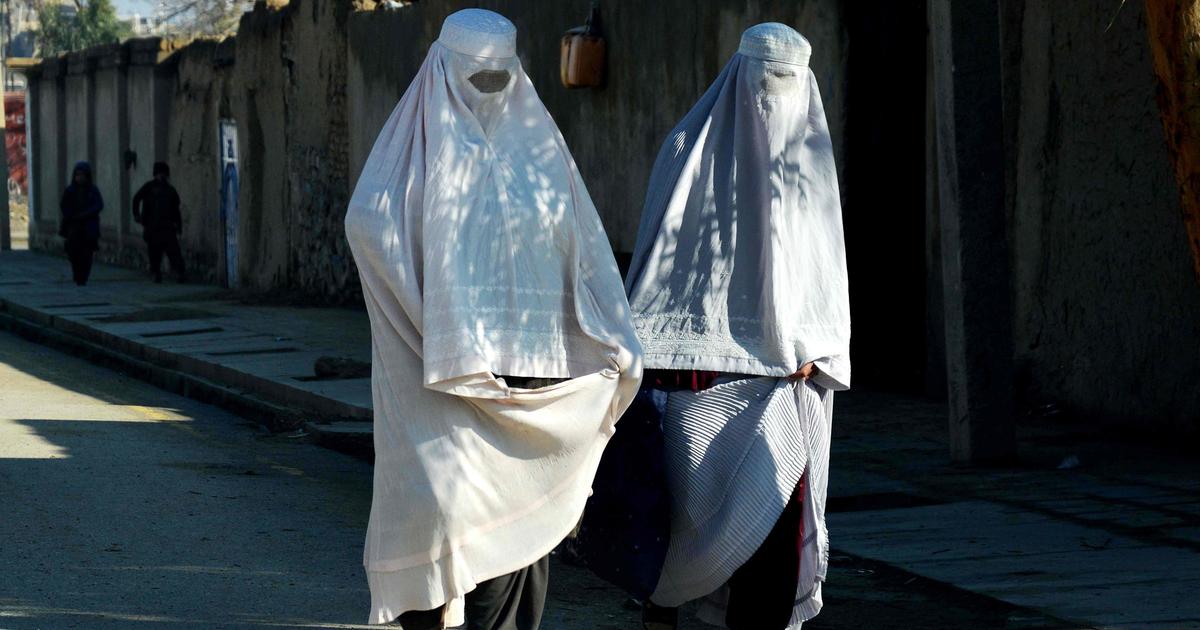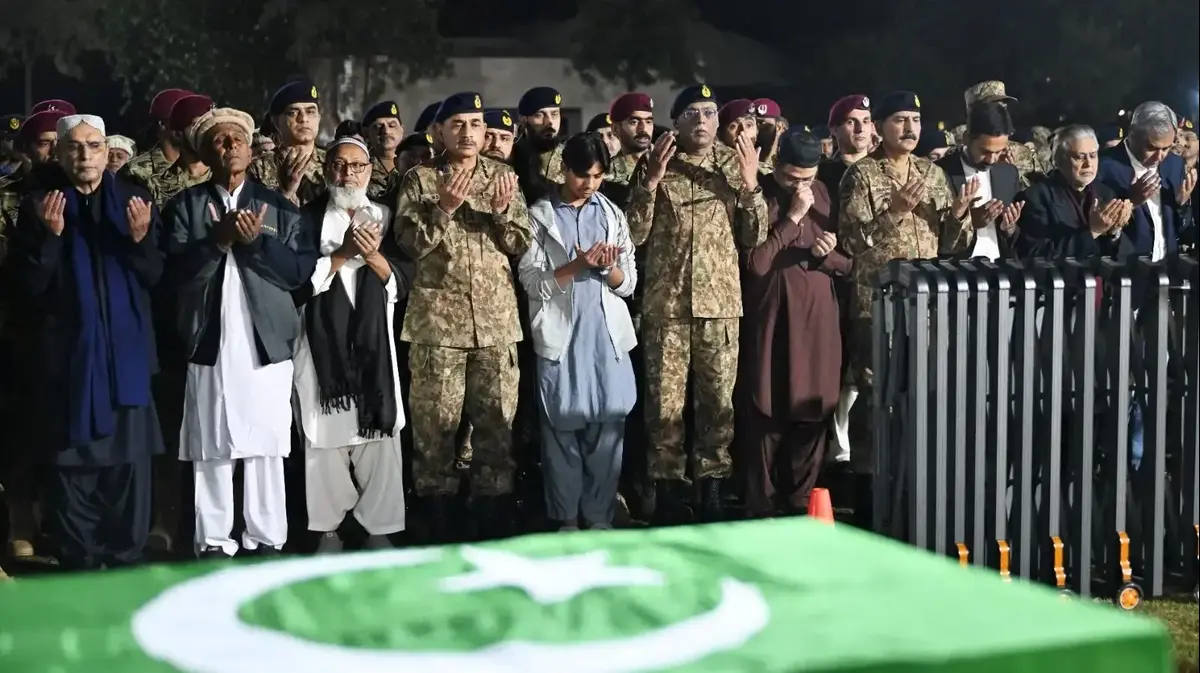David E. Sanger
08/15/2021 3:32 PM
Clarín.com
World
Updated 08/15/2021 3:32 PM
President Biden's top advisers admit they were stunned
by the rapid collapse of the Afghan army in the
face of an aggressive and well-planned Taliban offensive that now threatens Kabul, the capital of Afghanistan.
The last 20 years show that they shouldn't have been.
If there is a constant theme during two decades of war in Afghanistan, it
is the overestimation of the results of the 83 billion dollars
that the United States has spent since 2001 on training and equipping the Afghan security forces and an underestimation of the strategy. brutal and cunning of the United States.
The Pentagon had issued dire warnings to Biden even before he took office about the Taliban's potential
to defeat the
Afghan
military
, but intelligence estimates, which have now been shown to miss the mark, assessed that it could happen in 18 months, not weeks.
The commanders knew that the shortcomings of the Afghan forces had never been cured:
the deep corruption
, the failure of the government to pay many Afghan soldiers and police for months, the desertions, the soldiers sent to the front lines without adequate food and water, much less weapons.
Mazar-e-sharif run by the Talibaes.
Photo EFE
Biden's aides say the persistence of those problems reinforced their belief that the United States
could not prop up the
Afghan
government
and military in perpetuity.
At the Oval Office meetings this spring, he told his attendees that staying an extra year, or even five, would not make a substantial difference and was not worth taking risks.
In the end, an Afghan force that did not believe in itself and an American effort that Biden, and most Americans, no longer believed,
would alter the course of events
combined to bring an ignoble rapprochement to America's longest war. .
The United States maintained forces in Afghanistan much longer than the British in the 19th century, and twice as long as the Soviets,
with roughly the same results.
For Biden, the last of four American presidents to face painful decisions in Afghanistan but the first to come out, the debate over a final withdrawal and
miscalculations
about how to execute it began the moment he took office.
"With Trump, we were one tweet away from a full and hasty withdrawal," said Douglas E. Lute, a retired general who led Afghan strategy at the National Security Council of Presidents George W. Bush and Barack Obama.
Immigrants arrive in Kabul from the inside.
Photo EFE
"Under Biden, it was clear to all who knew him, who saw him pressuring by a vastly reduced force more than a decade ago, that he
was determined to end America's
military involvement," he added, "but the Pentagon believed in his own narrative that we would stay forever. "
"The conundrum for me is
the absence of
contingency
planning
: If everyone knew we were heading to the exits, why didn't we have a plan for the last two years to make this work?"
A skeptical president
From the moment the media called Pennsylvania looking for Biden on November 7, making him the next commander-in-chief of 1.4 million active duty soldiers, Pentagon officials
knew they would face an uphill battle.
to stop the withdrawal of US forces from Afghanistan.
Defense Department leaders had already been fending off Biden's predecessor, Donald J. Trump, who wanted a quick cut.
In a Twitter post last year, he declared that all American troops
would be out by that Christmas.
A Taliban soldier in Herat.
Photo EFE
And while they had publicly expressed support for the deal Trump struck with the Taliban in February 2020 for a full withdrawal in May, Pentagon officials said they wanted to
convince Biden not to do so.
After Biden took office, senior Defense Department officials began a lobbying campaign
to keep a small counterterrorism force
in Afghanistan for a few more years.
They told the president that
the Taliban had grown stronger
under Trump than at any time in the past two decades and pointed to intelligence estimates predicting that in two to three years Al Qaeda could find a new foothold in Afghanistan.
Look also
Crisis in Afghanistan: insurgent groups entered the country's capital
Shortly after Lloyd J. Austin III was sworn in as Secretary of Defense on January 22, he and General Mark A. Milley, Chairman of the Joint Chiefs of Staff, recommended to Biden that
3,000 to 4,500 soldiers stay in Afghanistan,
almost double the 2,500 soldiers there.
On February 3, a congressional-appointed panel led by a retired Navy general, Joseph F. Dunford Jr., publicly recommended that Biden abandon the May 1 departure deadline and further reduce US forces
only as
security
conditions improved
.
A panel report assessed that withdrawing troops on a strict schedule,
rather than how well the Taliban adhered to the deal
, increased the risk of possible civil war once international forces left.
Members of the British air force in Afghanistan.
AFP photo
But Biden, who had become
deeply skeptical of American efforts
to remake foreign countries in his years on the Senate Foreign Relations Committee and as vice president, asked what a few thousand American soldiers could do if Kabul were attacked.
Aides told them that the presence of US troops would
increase the dependence of the Afghan government on the United States
and delay the day when it will assume responsibility for its own defense.
Joe Biden, President of the United States.
AFP photo
The president told his national security team, including Secretary of State Antony J. Blinken and his national security adviser, Jake Sullivan, that he was convinced that no matter what the United States did,
Afghanistan would almost certainly fall apart. headed for another civil war
: one in which Washington could not prevent, but also, in his opinion, one in which it could not be drawn.
In March, Pentagon officials said they realized they were achieving nothing with Biden.
Although he listened to his arguments and asked many questions, they said they
had the feeling that he was determined.
The last try
In late March, Austin and General Milley made one last push with the president, forecasting dire results in which
the Afghan army
fell back in an aggressive Taliban advance.
They made comparisons to the way the Islamic State invaded the Iraqi military in 2014 after US combat troops left Iraq,
prompting Obama to send US forces back.
"We've seen this movie before
," Austin told Biden, according to officials with knowledge of the meetings.
President Ashraf Ghani left the country.
AP Photo
But the president was unfazed.
If the Afghan government couldn't stop the Taliban now, its advisers said it asked,
when could they?
None of the Pentagon officials could answer the question.
On the morning of April 6, Biden told Austin and General Milley that he wanted all American troops to
leave before September 11.
Intelligence assessments gave him some assurance that if a bloody debacle did result in Afghanistan, it would
at least be delayed.
In late June, intelligence agencies estimated that even if the Taliban continued to gain power, it
would be at least a year and a half before Kabul was threatened
;
Afghan forces had the advantages of greater numbers and air power, if they could keep their helicopters and planes flying.
Still, the Pentagon
moved swiftly to pull its troops out
, fearful of the risks of leaving fewer and fewer Americans in Afghanistan and that service members would be killed in a war the United States had given up for lost.
By the weekend of July 4, the United States had handed over Bagram Air Base, the military center of the war, to the Afghans,
ending all major
US
military operations
in the country.
"The Afghans
will have to be able to do it themselves
with the air force that they have, which we are helping them maintain," Biden said at the time.
A week later, he argued that Afghans "have the capacity" to defend themselves.
"The question is," he said, "will they?"
The will is gone For critics of the decision, the president underestimated the importance of even a modest presence, and the execution of the withdrawal worsened the problem.
The failure
"We set them up for failure,"
said David H. Petraeus, the retired general who commanded international forces in Afghanistan from 2010 until he was appointed CIA director the following year.
Biden's team, he argued, "did not recognize
the risk incurred by the rapid withdrawal
" of intelligence and reconnaissance drones and close air support, as well as the withdrawal of thousands of contractors that kept the Afghan air force in flight. all in the middle of a particularly intense fighting season.
Taliban in Kandahar.
Photo EFE
The result was that Afghan forces on the ground "
would fight for a few days
and then realize there were no reinforcements" on the way, he said.
The "psychological impact was devastating."
But administration officials, responding to such criticism, respond that the Afghan army
dwarfs the Taliban, some 300,000 troops to 75,000.
"They have an air force, a capable air force," something the Taliban don't have, John F. Kirby, the Pentagon's press secretary, said Friday.
“They have modern equipment.
They have the benefit of the training that we have provided them for the last 20 years.
Now is the time to take advantage of those benefits. "
But when Kirby noticed those advantages,
none of them seemed to be making a difference.
Abandonment
Feeling abandoned by the United States and
commanded by rudderless leaders meant that Afghan troops on the ground
"looked at what was in front of them and what was behind them, and decided that it is easier to go off on their own," said the general. retired.
Joseph L. Votel, a former commander of the United States Central Command who oversaw the war in Afghanistan from 2016 to 2019.
Biden, an administration official said, expressed frustration that President Ashraf Ghani of Afghanistan
had failed to effectively plan and execute
what was supposed to be the ultimate strategy: consolidating forces to protect key cities.
On Wednesday,
Ghani fired his army chief
, Lieutenant General Wali Mohammad Ahmadzai, who had only been in office for two months, replacing him with Major General Haibatullah Alizai, a special operations commander.
The commandos under General Alizai are the only troops to have consistently fought the Taliban in recent weeks.
Richard Fontaine, executive director of the Center for a New American Security, an influential Washington think tank that specializes in national security, wrote that in the end, the 20-year symbiosis between the United States and the Afghan government held firm, supported and ushered in the elections
had been broken.
"Those who highlight the military superiority of the Afghan government - in numbers, training, equipment, air power -
miss the most important point
," he wrote recently.
“Everything depends on the will to fight for the government.
And it turned out that it depended on the presence and support of the United States.
We call on Afghans to show political will when theirs depends on ours.
And ours is gone. "
On Saturday, when the last major city in northern Afghanistan fell to the Taliban, Biden
accelerated the deployment of an additional 1,000 troops
to the country to help ensure the safe evacuation of US and Afghan citizens working for the US government from Kabul.
Biden issued a lengthy statement blaming Trump for at least part of the unfolding disaster.
He said:
"I inherited a deal made by my predecessor"
that "left the Taliban in the strongest military position since 2001 and imposed a deadline of May 1, 2021 on US forces."
He said that when he took office, he had a choice:
comply with the agreement or "increase our presence
and send more American troops to fight once again in another country's civil conflict."
"I was the fourth president to preside over a US troop presence in Afghanistan -
two Republicans, two Democrats
," Biden said.
"It would not happen, and I will not happen, this war to a fifth".
With Helene Cooper. The New York Times
PB
Look also
Who are the Taliban and why they already control all of Afghanistan
Crisis in Afghanistan: Kabul fell and the Taliban negotiate "a peaceful surrender" of the government






/cloudfront-eu-central-1.images.arcpublishing.com/prisa/VU7S6EWZZVMMDGHINQUMAFJHCE.jpg)


/cloudfront-eu-central-1.images.arcpublishing.com/prisa/LVJL54B5LZD55C6MUUC7GEVHBQ.jpg)